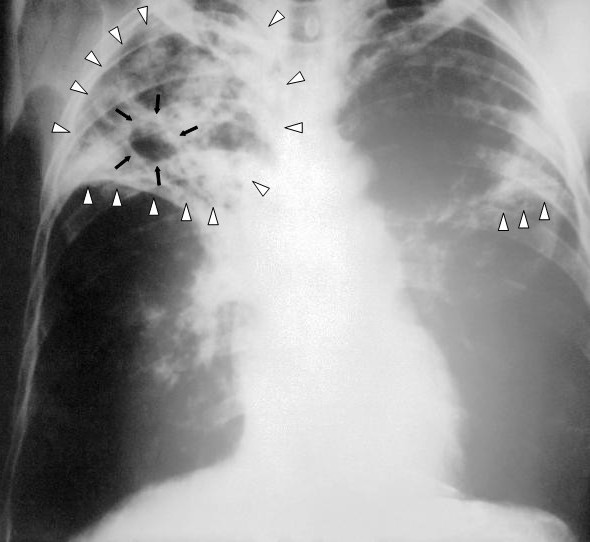
An X-ray showing far-advanced tuberculosis. Image from Centers for Disease Control and Prevention’s Public Health Image Library (PHIL). Used under creative commons. Permission: PD-USGov-HHS-CDC
28 September 2018
A new vaccine to prevent tuberculosis in young people and adults has been announced. One of the world’s most prestigious medical journals, the New England Medical Journal, published the results of a GlaxoSmithKline (GSK) trial on Tuesday.
The phase two trial was conducted with over 3,000 participants from South Africa, Zambia, and Kenya aged between 18 and 50, all of whom were positive for tuberculosis. Participants with the tested vaccine contracted tuberculous at a 54% lower rate than those without the vaccine.
This news came one day before the convening of the first ever United Nations General Assembly meeting dedicated to “accelerate efforts in ending TB and reach all affected people with prevention and care”.
However, the trial results have what in statistics is called a wide confidence interval. In technical language, the efficacy is 95% likely to lie between 2.9% and 78.2%. In layperson’s terms this means that there is a lot of uncertainty about how effective the vaccine is. At 2.9% efficacy, it would not be worth bringing to market.
This suggests the need for a third trial of the vaccination amid the celebration in what is known as a Phase III trial. It would be much bigger than the phase II trial, Yet it is unclear whether such a trial will take place.
Marcus Low, co-editor of Spotlight, a publication on health produced by the Treatment Action Campaign and SECTION27, told GroundUp that the findings are “promising” but that “there is still significant uncertainty about how safe and effective the vaccine really is”. There is a “good case” for a bigger phase three trial. Low went on to say that “hopefully GSK will get this phase III trial off the ground very quickly, something we can unfortunately not take for granted, especially in TB where there is a history of important trials being delayed”.
Asked whether a further trial would be conducted, GSK told GroundUp, “The study will continue until all participants complete three years of follow-up. Aeras and GSK will perform a final analysis of the clinical data at that point in time, including analysis of all efficacy, safety, reactogenicity and immunogenicity data. When the final analysis is complete, Aeras and GSK will agree on the appropriate next steps. We anticipate being able to perform the final analysis in 2019.”
UPDATE on 29 September at 13:25: The article was updated with GSK’s comment.